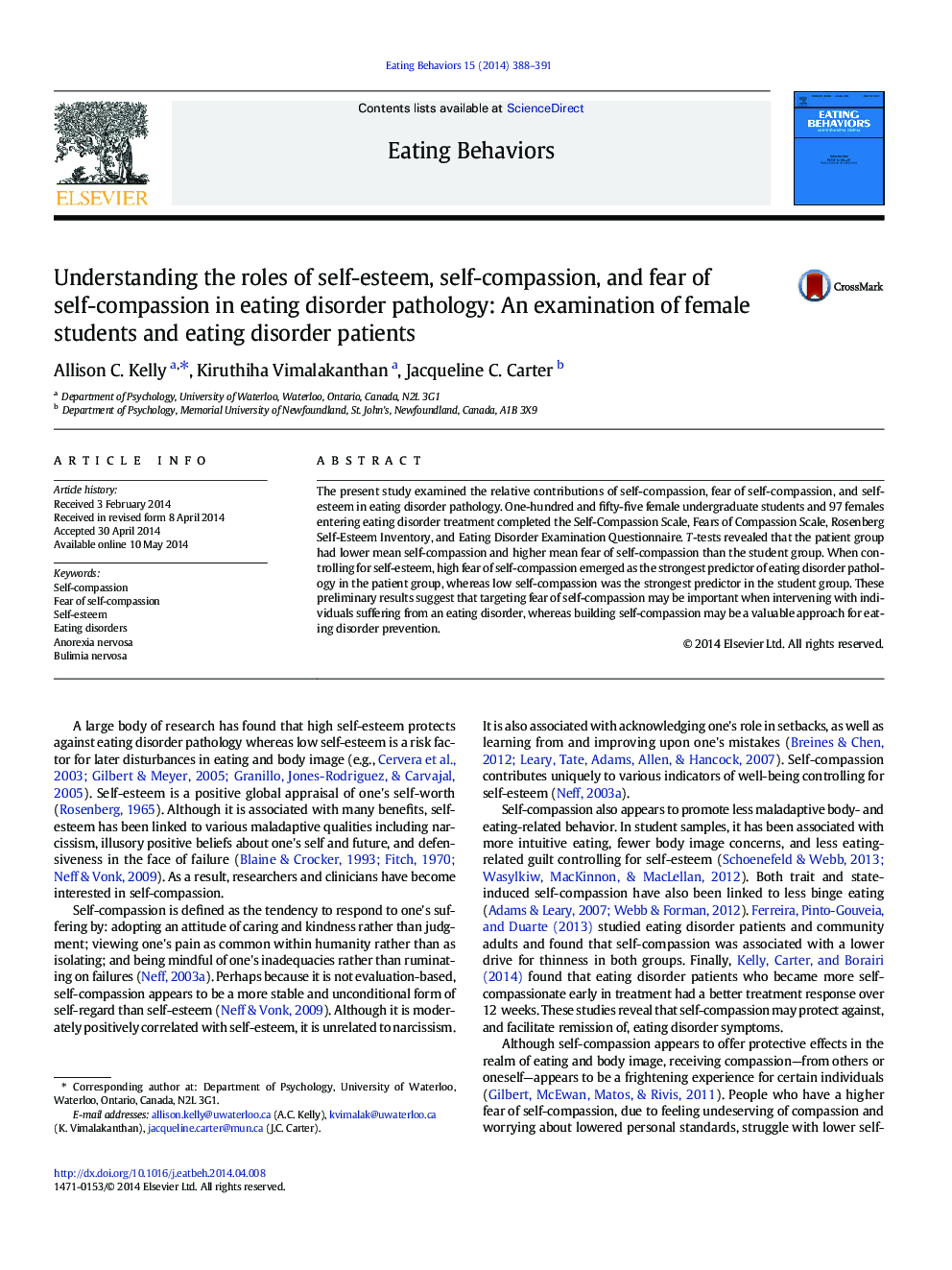| Article ID | Journal | Published Year | Pages | File Type |
|---|---|---|---|---|
| 906354 | Eating Behaviors | 2014 | 4 Pages |
•We compared female undergraduate students and female eating disorder patients.•The student sample had higher self-compassion and lower fear of self-compassion.•Low self-compassion predicted eating disorder pathology among students.•High fear of patients.
The present study examined the relative contributions of self-compassion, fear of self-compassion, and self-esteem in eating disorder pathology. One-hundred and fifty-five female undergraduate students and 97 females entering eating disorder treatment completed the Self-Compassion Scale, Fears of Compassion Scale, Rosenberg Self-Esteem Inventory, and Eating Disorder Examination Questionnaire. T-tests revealed that the patient group had lower mean self-compassion and higher mean fear of self-compassion than the student group. When controlling for self-esteem, high fear of self-compassion emerged as the strongest predictor of eating disorder pathology in the patient group, whereas low self-compassion was the strongest predictor in the student group. These preliminary results suggest that targeting fear of self-compassion may be important when intervening with individuals suffering from an eating disorder, whereas building self-compassion may be a valuable approach for eating disorder prevention.
